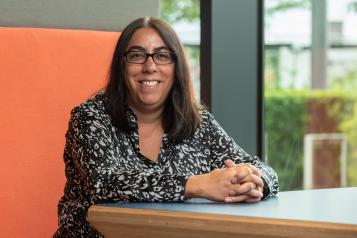Reflections on making people’s voices count
When I joined in January 2013, Healthwatch was a few lines in the Health and Social Care Act 2012; an untested concept.
However, the idea was a simple one - that by listening to the views and experiences of people, health and social care services could be improved. The challenge for us was to build a network that had people at its heart.
Cast forward three years and local Healthwatch up and down the country are making a real difference to their local communities.
They are reaching out to more people than ever, finding out what really matters to them and making sure these views are heard by those who commission and deliver services.
This is a significant achievement but what has helped develop a powerful Healthwatch network, united in its determination to make people’s voices heard?
There are many factors but here are my top five:
1. Willingness to work together
At our very first Healthwatch conference in Reading back in 2013, I looked around at everybody standing together in the sunshine and realised the incredible potential we had to make a difference together.
This potential has been realised on many occasions. For example last year’s ‘Safely Home’ report on poor hospital discharge set out a compelling case for change.
This would not have been possible without the evidence gathered by over 100 local Healthwatch investigations into people’s experiences of leaving hospitals and mental health settings.
2. The public’s desire to be heard
People want to have the opportunity to have their say. When witnessing the very first stages of local Healthwatch – watching staff and volunteers venture out into the community and tell people what we stand for – we saw immediately a real interest in our purpose.
The people we have spoken to up and down the country want services to know what matters most to them and Healthwatch has been dedicated to finding out these views.
Our work on primary care, dentistry, mental health services and a whole host of other areas have all come about because local Healthwatch told us that they were a priority for their communities
3. Care and sensitivity
Local Healthwatch carry out their work with real care and sensitivity. Both staff and volunteers speak to members of the public about complex – and often distressing - concerns and complaints with consideration. They listen hard, and I have come to realise how challenging it can be to listen properly to people’s concerns. That our network do this with such compassion is admirable
4. Honesty and relentless resilience
Local Healthwatch have faced their fair share of challenges but whether it’s been a cut in funding, closure of a local service or tensions within their own organisations, they have always faced their difficulties and worked to set things right.
The honest, unvarnished comments and suggestions we receive from local Healthwatch have helped keep Healthwatch England grounded and made sure that we never lose sight of what we’re working towards.
5. People power
None of our work would be possible without the incredible volunteers who represent all parts of our communities and who do fantastic work to give local people a voice.
The passion and commitment of the Healthwatch staff also knows no bounds. They recognise how difficult it can be for people to speak up about their concerns – particularly when they are vulnerable – and have worked tirelessly to make their voices heard and to push for change.
It has been a privilege to lead Healthwatch England and to see the difference made by working together with local Healthwatch over the last three year.
The Healthwatch network will continue to make a difference in 2016. Why not be part of this?
Contact your local Healthwatch, have your say and help improve the health and social care services of today and tomorrow.

